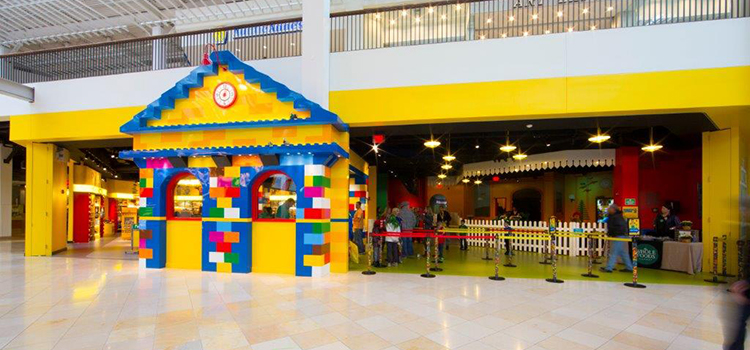While the world of retail evolves, property owners are working to attract shoppers with new dining, entertainment and store offerings. As demographics shift and millennials spend more money, it’s increasingly important to appeal to these shoppers.
In this post, we talk with PREIT CEO Joseph Coradino about how PREIT is remaining nimble to appeal to all types of consumers.
During the first quarter of 2017, what are the major trends you’re seeing in terms of retail space, mall utilization and positioning of properties?
The retail industry has been undergoing a significant transformation, and the first quarter of 2017 witnessed a number of major changes. Department stores such as Macy’s and Sears announced store closures to decrease their footprints. Simultaneously, PREIT proactively announced new retail, dining and entertainment concepts across the country to replace these anchor stores and diversify our offerings. Our 2016 Shopper Survey found that consumers are motivated to visit malls for a variety of experiences including movie theaters, full-service sit-down restaurants and off-price retailers. By welcoming these types of retail, dining and entertainment options – coupled with other innovative concepts – malls are not only replacing closing stores but also adapting to shifting consumer behaviors and fueling the ongoing disruption of the traditional mall experience.
With stores such as Macy’s and Sears closing locations, how are you using the opportunity to reposition some of your properties?
These closures represent opportunities to bring new, dynamic and coveted brands to malls to create a differentiated experience for shoppers. A blend of retail, dining and entertainment can strengthen the position of malls and help drive traffic to – and value for – the property.
At PREIT, we have proactively replaced a number of department stores with more contemporary anchor tenants. Since 2012, we have reduced the number of Sears and Kmart stores in our portfolio from 27 to about nine – with replacements including DICK’s Sporting Goods, Primark, Burlington, Von Maur and Whole Foods. As a result, we’ve effectively repositioned properties as dominant retail destinations in their markets and enhanced the shopper experience for consumers.
What is an example of a location that’s had a turnover in its flagship store and how a new retailer has driven traffic?
At Willow Grove Park in Pennsylvania, Sears was replaced by Primark, a leading European fashion retailer that has been making waves in the U.S. Fast-fashion is a hot retail segment, and welcoming Primark to Willow Grove Park – just the fifth location in the Northeast – has significantly differentiated the mall and diversified its tenant mix.
At Plymouth Meeting Mall, LEGOLAND Discovery Center is reinforcing the property’s transformation to a lifestyle destination in the Philadelphia region. It’s the first location in the state, the ninth in the country, and the 17th in the world. These types of innovative anchors are critical to the future of malls and illustrate the constant evolution of the industry.
How do you factor economic uncertainty into plans for your properties?
We’re focused on adding brands that will resonate with the local communities where our malls are located. We want to ensure we’re bringing in the right tenants – ones that complement the existing retail and dining offerings and meet the needs of our shoppers. As a result, we look closely at the demographics and psychographics of the neighboring region to determine what will best serve the local shopper community and continue to help our malls thrive.
What trends do you see for the rest of 2017?
As the industry evolves, there will be a continued effort to diversify our tenant base and add new tenant concepts beyond the traditional ones. According to our Shopper Survey, nearly two-thirds of consumers like to do more than just shop at the mall — whether it’s eating, watching a movie or just having fun. Currently, 17% of PREIT’s retail space is committed to dining and entertainment tenants, which continues to grow. As consumer behaviors shift, so too will the offerings at malls in order to drive traffic, attract new in-demand brands and add value to the property.
Joseph Coradino is Chief Executive Officer and a Chairman of Pennsylvania Real Estate Investment Trust (PREIT). PREIT (NYSE:PEI) is a publicly traded real estate investment trust that owns and manages quality properties in compelling markets. PREIT’s 23 million square feet of carefully curated retail and lifestyle offerings mixed with destination dining and entertainment experiences are located primarily in the eastern U.S. with concentrations in the mid-Atlantic’s top MSAs. Since 2012, the company has driven a transformation guided by an emphasis on portfolio quality and balance sheet strength driven by disciplined capital expenditures. Additional information is available at www.preit.com or on Twitter or LinkedIn.
